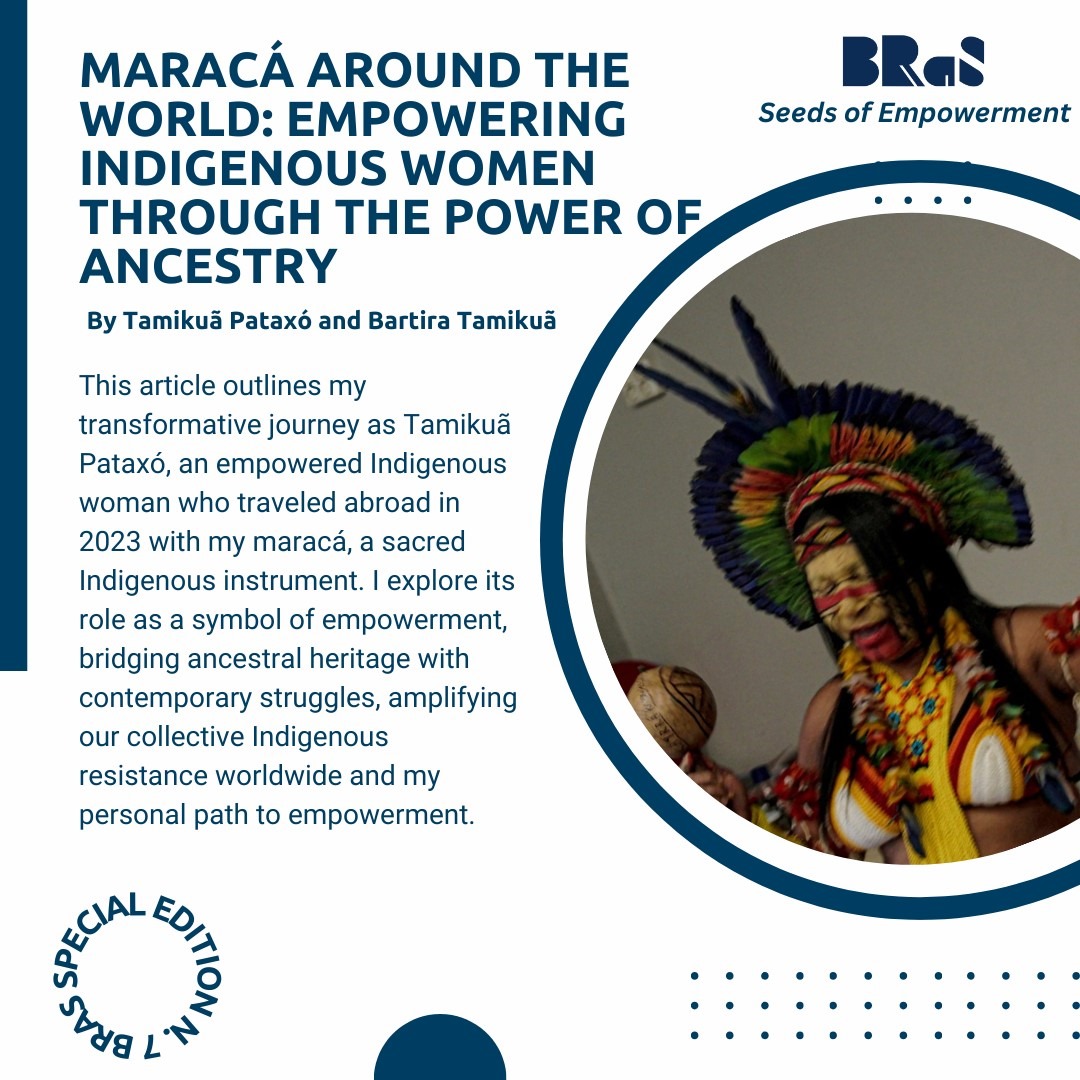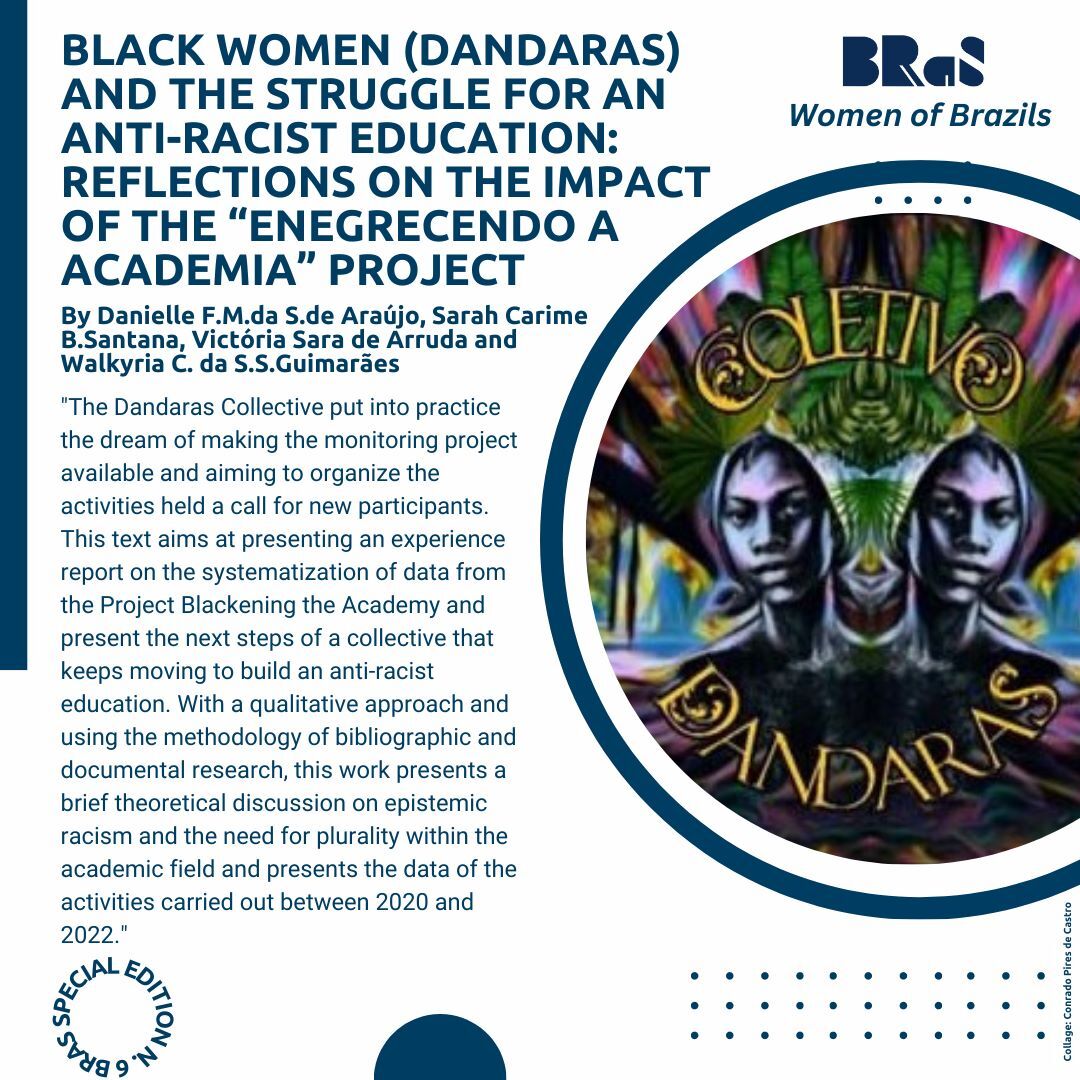by Rubra Pereira de Araujo*
Translated by Lucas Thixbai Fraga
Reviewed by Matheus Lucas Hebling
Note from the editor: The term “transvestite” was kept as a way to resignify its meaning.
Today BRaS-Blog Special Edition (SE) No. 6 – Women of Brazil(s) publishes an autobiography written by Doctor, Professor, researcher, activist, and trans woman Rubra Pereira de Araujo. Enjoy the reading!
Claudia Pires de Castro and Helena Vetorazo
Hoje eu vou mudar
Vasculhar minhas gavetas
(…)
Fazer limpeza no armário
Retirar traças e teias
E angústias da minha mente
Parar de sofrer
Por coisas tão pequeninas
Deixar de ser menina
Pra ser mulher
(…)
Porque sou mulher como qualquer uma
Com dúvidas e soluções
Com erros e acertos
Amor e desamor
Suave como a gaivota
E ferina como a leoa
Tranquila e pacificadora mas ao mesmo tempo
Irreverente e revolucionária
Feliz e infeliz
Realista e sonhadora submissa por condição
Mas independente por opinião
Porque sou mulher com todas as incoerências
Que fazem de nós um forte sexo fraco
Eu preciso mudar
Eu preciso, eu preciso mudar (eu vou mudar).
Excerpts of the lyrics of the song: “Mudanças”, composition by Sergio Antonio Sa De Albuquerque / Vanusa Santos Flores, in an album from 1979.
These lyrics are interpreted as a performative declamation of an album released in vinyl disc format in the last year of the 1970s (a decade of struggles, global trends of restlessness in favor of freedom and citizenship and that marks my incarnation in this earthly trajectory) and before the invitation to write this text that aims to represent multifaceted of a diverse and plural Brazil, here I expose my concerns. I propose the textual genre in a kind of autobiography and this writing emerges in a distressing moment of life trajectory, in the energy of a waning lunar phase, which occurred in the fixed sign of the water element (emotion) of Scorpio, in a lunation of a sign also fixed, of the air element (reason) Aquarius… amid adversities, intrinsically, I am moved by interpellations! Faced with the opportunity to bring light to the shadows that many of my peers silenced, inconspicuous, and publicly executed, I faced the challenge of writing it with my physical body wounded in bruises that reverberate in my soul, eminently feminine.
The femininity I assume here does not come from the ‘fragile sex’, poetically decanted in songs, poems, or discursive practices of subjectivization of the collective imaginary of my western continent. Such connotations represent women as fragile being susceptible to phallocentric, macho, and patriarchal impositions.
Now I assume the condition of a “red flower” that resists the storms and other bad weather that ravage our bodies and desires, such sociocultural impositions resulted in many falling throughout history and continue being exposed to symbolic deaths and cruelty (it is not in vain that I am incarnated in a misogynist country that leads the rankings of lethal violence against the various expressions of womanhood). In this sense, I dare to state here that the warlike violence of transphobia that ravages humanity is misogynist.
I assume the persona of a trans woman (on purpose, I preceded the word woman with the prefix trans, and I also dare to assume the term “trans-old” in allusion to the memory of a great example of subversion of the body and gender identity/performance – João W Nery)
I was born late in the dawn of a Sunday day (the day that the most remote traditions dedicate to the star king of the center of the planet Earth), the date on which the Brazilian civil calendar celebrates the Day of the Dead. In controversy, I was registered at the Registry of Natural Persons ten days later, attending to the connotation of a simply ordinary day (once again, the pressing need to meet the standards of normality).
These contradictions of death and rebirth with the strong predominance of the sign of Libra and several planets situated in the 1st house of my birth chart, I was born and lived forty-some years in the imminence of the in-between place – a space safe, but full of fissures and great possibilities of overflowing. Still, under the prism of finitude, antagonism, and chaos itself, I settled into a body that needed to perform (in the words of the philosopher Judith Butler) to survive and be entitled to a place of the least sun in the exercise of citizenship.
In a country of notorious sociocultural inequalities, where a social project of devaluation of public education predominates, making teaching eminently feminine and of great possibilities of evasion from the private to the public, I embarked on a teaching and, in this field, I became a teacher educator in their initial training. Teaching is a political act.

In order not to make up for the growing numbers of murder rates of trans women in this country, I survived in-between places, assuming a double gender performance: at work, I would cross-dress in my biological gender and at night, in moments of leisure, I would dress in the gender that my soul has always identified. In this subversion, I always thought that simple genitalia, which represents less than 5% of my body morphology, could not be determinant of my personality performatively oriented towards the feminine. In this eccentricity, I exceeded the average life span for a transvestite woman in my country and when I turned 4 decades old, about 10 years after the return of the planet Saturn in my zodiacal mandala, I assumed that “the cry for freedom should come from the oppressed”.
From the sociocultural prisons imposed on my body, I echoed my cry for freedom. After the academic title of Ph.D. and hard-won professional stability and institutionalized homo/transphobia, through several public competitions, I claimed civil rights won in this country not by the highly conservative parliament that legislates for its interests, but by the power of the Brazilian Supreme Court. Initially, I claimed the right to use my social name and, later, the rectification of the civil name, at the registry office of natural persons.
Such achievements dare me the right to reassert myself as a woman with all the citizen prerogatives provided for in the Brazilian Federal Constitution (1988) and the preambles of Universal Human Rights (1948).
Being and becoming a woman in this country is not a simple task, and belonging to the dwarf race in women’s rights makes us highly vulnerable. An academic title and a legitimation as a trans researcher from the perspective of human rights do not exempt me from still being violated in my basic inalienable rights. I write these lines at a moment when I am recovering after being physically abused by hands that approached me with the apparent intention of stroking me. The fact of seeking continuous empowerment in the smallest actions and not being suffocated by unspoken words makes us pay a high price of loneliness and even social ostracism imposed even by the sexual diversity and gender expression community. Transgenderism still suffers muffling and silencing imposed by cisgender expression.
To the transgender woman or transvestite is imposed the territorialization of the ghetto, we are still overshadowed by the brightness of the headlights on the corner, and we have little right to scream. In the sociocultural imaginary of this country, we are still useful and servile bodies to the eccentric libidinous desires of the cisgender population. In this sense, we claim the agenda of transfeminism in the struggles for equalization of rights and this text is an opportunity to scream, and therefore we call: TRANSVESTITE/TRANSEXUAL WOMANHOODS EXIST.
* Rubra Pereira de Araujo is a transvestite woman, Ph.D. in Language and Literature. Professor, researcher, and activist at the Federal University of Tocantins/UFT, where she works in the undergraduate and graduate courses in Literature, teaching practice, and supervised internship for Teachers of Portuguese Language and Literature. She researches gender issues, diversities, religiosities, and their interfaces with education. Contact: rubraaraujo@uft.edu.br.
Araujo, Rubra Pereira de. 2023. "The right to scream of transvestite and transsexual womenhood". Brazilian Research and Studies Blog. ISSN 2701-4924. Vol. 4 Num. 3. Available at: https://www.bras-center.com/the-right-to-scream-of-transvestite-and-transsexual-womenhood/, accessed on: February 24, 2026.








